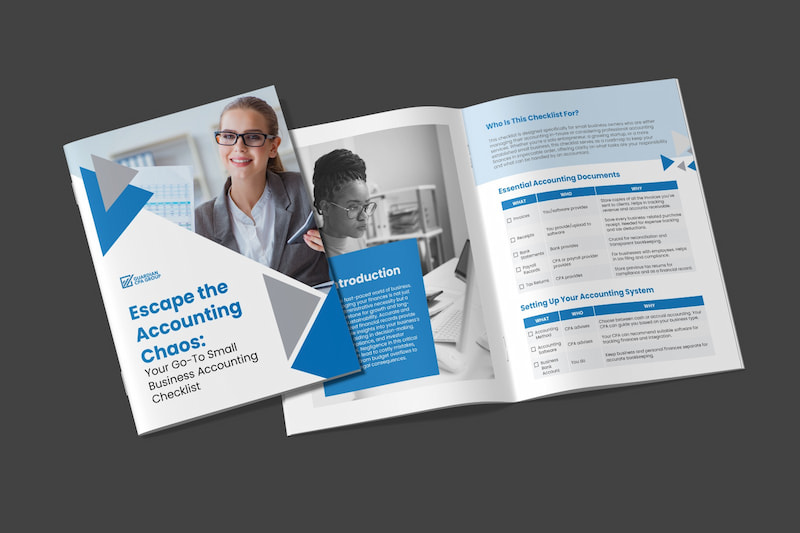You have a business that you’ve been running for a while now. You are planning to grow and expand or even go in the past month’s financial performance but feel confused. Is it the figures that are boggling you, or is it the organizing of your accounts you are struggling with? Well, bookkeeping is something you should look for.
As you grow, your team grows, your services expand and there are more chances for further expansion. In the middle of all of this, there are a lot of transactions happening and it can become hard to keep track of all the financials and numbers. A smart and suggested way to deal with this is hiring or looking out for an accounting firm with CPAs who specialize in bookkeeping.
Now that you know the baseline of where bookkeeping assists you, there’s a lot more to it and one can always confuse it with general accounting and maintaining mere transaction records. That’s exactly why we are here to guide you through the entire process of bookkeeping and how it can benefit you on every stage of growth.
We’ll also discuss the importance and role of a bookkeeping professional in your business. Let’s get started.
What really is bookkeeping?

Bookkeeping is the financial backbone of a business and it helps every scale of business. It is a systematic method of recording, organizing and tracking a company’s financial records. Be it assets, liabilities, incomes or expenses, bookkeeping helps manage and maintain it all.
At intricate levels, bookkeeping also assists businesses and individuals in maintaining a clear-cut picture of its finances hence enabling informed decision-making and compliance with tax regulations.
In an ever developing environment and business, bookkeeping comes handy and is vital for having a financial clarity. Be it a small startup or a fully-fledged established company, accurate bookkeeping can assist you save up a lot of time, money and efforts on maintaining your company’s money matters.
It’s the foundation on which financial strategies are built and, when done right, paves the way for long-term stability and growth.
What do bookkeeping services do for your company?
The top view of bookkeeping usually indicates three approaches, namely recording financial statements, maintaining financial statements, and preparing these statements. Bookkeeping services play a crucial role in managing a company’s financial records and ensuring its financial health.
The general three-tiered approach allows bookkeepers to keep track of all the financials. Here’s how the meticulous approach these accounting experts use to manage your financial statements:
- Data Entry: Data entry is the first stage of a bookkeeping process. Data from all the transactions including invoices, receipts, bills and other financial documents are stored into an accounting software or a ledger. The accounting data file is created to cater to your business-specific needs and you have direct access to these records anytime you need them.
- Categorization: The next step is categorizing statements into relevant accounts under headers like incomes, expenses, assets and liabilities. This step is of integral importance as it helps track and organize financial data effectively.
- Double-entry system: The next step of the process is double entry system. It is used by bookkeepers. In this system, for every debit entry (money going out) there is a corresponding credit entry (incoming money). This system ensures books are always in balance. In it the amount recorded as debits shall equal the amount recorded as credits.
- Reconciliation: This stage of the bookkeeping process includes reconciliation. Reconciliation is a procedure that compares two sets of records to check that the figures are correct and are in agreement. Bank and credit card statements are reconciled with the records to identify and rectify any discrepancies. This process helps ensure the accuracy of the financial data.
- Financial Statements: These are written records. They deliver business activities and financial state of the company. Bookkeepers prepare them, including the income statement (profit and loss statement) and the balance sheet. These statements provide a clear picture of a company’s financial position.
- Accounts receivable and payable: Accounts receivable and accounts payable are majorly funds that are owed to and owed by a company to either finance firms or vendors and customers. Managing accounts receivable (money owed by customers) and accounts payable (money owed to suppliers) is a critical part of bookkeeping. It ensures that the company is paid on time and pays its bills promptly.
- General Ledger Maintenance: The general ledger is the central repository for all financial transactions. Bookkeepers maintain this ledger to provide a comprehensive view of the company’s financial activities. It means keeping a record of every financial record of a company.
- Tax Preparation: Bookkeepers often assist in preparing financial records for tax purposes, making sure the company complies with tax regulations and takes advantage of applicable deductions. Tax returns need to be filed efficiently for any entity while also being precise in the figures and policies.
Tax regulations shall be followed while filing tax returns and focus shall be laid on minimizing mistakes and penalties. Maximizing credits and deductions is also an integral part of tax preparation. - Financial Reporting: Summarising and reporting financial data is very important. Financial statements including the profit and loss and balance sheets are prepared depending upon the information in the ledger. They reflect the company’s financial position and provide stakeholders with insights into the company’s financial health.
- Payroll Processing: Some bookkeepers handle payroll, ensuring that employees are paid accurately and on time while managing payroll taxes and compliance.
- Audit Support: Bookkeepers help prepare for financial audits, providing organized and accurate financial records to auditors and business owners.
Why is bookkeeping so important?
Bookkeeping is the financial compass that guides companies to success. Its importance lies in the clarity and control it provides over a company’s monetary affairs. By diligently recording every transaction, bookkeepers ensure transparency, accuracy, and accountability. It unveils the financial status of a business, ensuring informed decision-making and strategic planning.
In addition, precise bookkeeping is a prerequisite for complying with tax regulations. It helps businesses claim justified deductions, avoid penalties, and get through audits. Efficient bookkeeping also streamlines operations by tracking accounts receivable and payable, optimizing cash flow, and preventing financial pitfalls.
Moreover, investors, lenders, and potential partners rely on well-managed financial records to evaluate a company’s stability. Whether you’re a startup, small a large business, the insights received from proper bookkeeping can be a game-changer.
Ultimately, bookkeeping is not just about numbers; it’s about laying trust, making sound economic decisions, and guiding businesses toward their goals.
What happens when you lag on recording financial statements or do not have them organized?
When financial statements are neglected or disorganized, businesses can find themselves sailing through without a navigational chart. The repercussions of lagging on financial record-keeping are far-fetched. Not only does it hinder transparency and decision-making, but it also exposes the company to potential pitfalls.
Firstly, without up-to-date financial statements, businesses operate in the dark, making it difficult to assess their true financial status. This lack of clarity can lead to misguided decisions, hampering growth and profitability. In the long run, it might even jeopardize the very existence of the company.
Secondly, disorganized financial records can spell trouble during tax season. Inaccurate or incomplete documentation can result in missed deductions, tax penalties, or even audits, causing undue stress and financial strain.
Furthermore, investors, lenders, and stakeholders rely on well-organized financial data to assess the company’s trustworthiness. Fumbling through financial records can erode credibility, potentially scaring away vital support and investment.
In essence, failing to maintain organized and updated financial statements is like navigating treacherous waters without a compass. It’s a recipe for financial instability, compliance issues, and missed opportunities. Businesses that prioritize organized record-keeping are better equipped to weather financial storms and set sail toward long term success.
What is the role of bookkeepers in an organization?
While bookkeeping is a critical role in a business’s financial tasks, it is also important to hire the right people or service providers that create a dedicated team for your company’s bookkeeping.
A bookkeeper not only records, maintains, and tracks the financial statements of your business but also organizes them in order for you to make the right business decisions based on your business’s financial health by giving valuable insights.
Their responsibilities are essential for maintaining accurate financial records and ensuring compliance with tax regulations. Bookkeeping helps you forecast the future of your company, make financial decisions for the future, and plan investments depending on your current financial position.
Bookkeepers collect and arrange the financial data of a business in a manner that when needed to be studied and understood by the people in leadership roles can take informed decisions. They can know the past performance and how they want to lay the future plans.
It’s important to know that bookkeepers are not certified for to do or file taxations for a business. It’s rather an important job out of the entire financial management scenario.
The bookkeepers keep a track of the financial transactions which is further recorded into bookkeeping software or ledgers. They also assure that the financial reports are entries are up to date and accurate.
They then bifurcate financial transactions under separate verticals that read assets, liabilities, incomes, and expenses. This part of their job in financial operations is also called categorization.
They further use double-entry accounting to balance out the financial books of the company. The next step includes finding discrepancies in the financial records by comparing the bank or credit statements and the company’s own records to ensure transparency and accuracy.
While they are the financial architects, they also make sure that the company pays its bills and receives its paybacks in a timely manner. This proactive approach is called accounts payable and receivable management.
To further record the cash flow statements of a company, the bookkeepers maintain a repository by entering all details in the general ledger. It provides a clear view of the financial matters to the stakeholders.
Preparing profit and loss statements and balance sheets is another part of these accounting service providers. These experienced professionals are responsible for preparing financial reports for easy reference of both external and internal stakeholders. It is done to comply with mandatory accounting requirements.
I want to hire a bookkeeping service provider for my business. Where do I start?
Expert guidance on the financial backdrop of your business always helps you stay a step ahead in the competitive business landscape and keeps you future-proof. The business growth is in the hands of its stakeholders who make data-driven decisions based on data provided by the team of professional bookkeepers. But what shall you do in order to hire an effective team?
Depending on the size of your business and the future prospects, you might want to invest some valuable time in looking for bookkeepers or service providers who have previously worked in your industry.
It’s not just about attaining financial excellence by filing your tax returns on time but also keeping a good track of your financial records for smooth operations. That’s exactly why these financial service providers come into the picture to give financial guidance.
You can outsource one of the services or hire a comprehensive service provider. Look for reviews and seek recommendations to ensure their reputation aligns with your expectations.
Next, consider your budget and the pricing structures offered by these providers. Make sure the costs are transparent and fit within your financial plan. As you narrow down your choices, engage in direct conversations to evaluate their communication and responsiveness.
Effective communication is vital to a successful partnership. Explore their technology and software compatibility, as seamless integration with your existing systems can streamline operations. Further, delve into their approach to data security, compliance with regulations, and client support. Your business may grow, and your bookkeeping needs may change.
Ensure the provider can scale their services to accommodate your evolving requirements. Consider their availability during critical financial periods, such as tax season or month-end closings. As a good practice, see if the provider carries professional liability insurance, which can protect you in case of errors or omissions.
Hiring an efficient bookkeeping service is important for your business success. These integrated solutions go around managing your company’s cash flow statements by recording, maintaining, and preparing them. A comprehensive bookkeeping service provider will always use the three-tier approach that divides into data entry, posting and categorizing, and financial reporting stages.
Want to explore the advantage of hiring Guardian CPA Group as your year-round accounting firm and bookkeeper? Book a meeting to learn more!
What’s the difference between hiring a bookkeeper and a CPA firm? How can a CPA firm benefit more than just bookkeeping service?
When it comes to managing the financial needs of a business, there are several options available. A bookkeeper and a Certified Public Accountant (CPA) firm are two of those options. While both of these services can provide you with assistance in managing your finances, there is a distinct difference between the two that you should be aware of.
A bookkeeper generally deals with the day -to-day financial tasks of a business. This includes recording all transactions, reconciling accounts, and preparing financial statements. A bookkeeper’s role is mainly focused on the accuracy and timeliness of financial data.
On the other hand, a CPA firm provides a much broader range of services. This includes preparing and auditing financial statements along with offering tax advice and consulting on strategic financial planning. A CPA firm is able to provide a comprehensive solution for businesses in order to assist them with their long-term growth and success.
At Guardian CPA Group, we understand that hiring a bookkeeper or a CPA firm can be a daunting process. Our experienced team of professionals offers comprehensive services tailored to meet the specific needs of your business.
Our focus on providing timely and accurate financial data is complemented by offering strategic advice to help you make informed decisions. We are committed to providing the best solutions for your business and take pride in our commitment to client satisfaction.
How can Guardian CPA Group help you?
A scalable business always seeks someone who can help them with financial insights for future-proof financial planning. Well, Guardian CPA Group provides a comprehensive range of financial solutions, one of them being bookkeeping. Our expert team has years of experience working with clients that entail startup founders to million-dollar corporations.
Accurate bookkeeping with a proactive approach can help you with financial guidance hence leading you to financial success. Here’s how our team helps you achieve your financial goals:
- Meticulous financial record keeping: Guardian CPA Group ensures meticulous and precise recording of your financial transactions, guaranteeing that every dollar is accounted for.
- Customized solutions: From a wide range of solutions, we cater to your as per your business requirements. Some companies look to outsource only a certain part of their accounting solutions, hence our customizable financial services help you in your future growth.
- Experienced team: Our expert insights play a pivotal role in bookkeeping as they record and maintain your books form scratch. They can help you maintain transparency and find discrepancies.
- Data Security: Guardian CPA Group prioritizes data security, implementing robust measures to safeguard your financial information from breaches or unauthorized access.
- Scalability: As your business grows, our services can scale to meet your evolving bookkeeping requirements, providing flexibility and adaptability. We have already worked with businesses ranging from startups to big corporations.
- Timely and Clear Communication: Count on our team for clear and responsive communication, keeping you informed and confident in your financial management. Our unwavering commitment to our clients allows us to imbibe accuracy in bookkeeping and a deeper understanding of their financial health in real time.
- Transparent Pricing: Their transparent pricing structure ensures that the costs align with your budget, making financial management a cost-effective investment in your business’s success.
Discover the key to financial success with our tailored bookkeeping services. We are your partners in unlocking the door to financial clarity.
Our experienced team offers meticulous record-keeping, expert compliance, and customized solutions to meet your unique business needs. With a commitment to precision and advanced technology, we ensure seamless integration with your systems. Rest easy knowing your data is secure, while timely communication and transparent pricing keep you informed and in control.
Embrace the power of Guardian CPA Group’s expertise to propel your business toward its goals, making every dollar count on your journey to financial success. We are not just here to help you explore new growth opportunities but also to help you with financial tracking to know the pain points of the existing financial structure.
Get Started by Downloading our Small Business Accounting Checklist and Book a Meeting to Learn more about our Monthly Accounting & Bookkeeping Plans.

